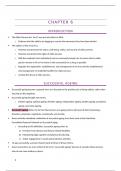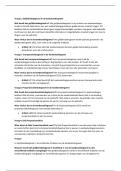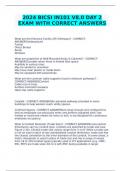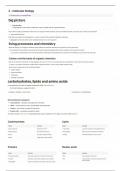Summary
Summary SLK 210 Chapter 6 notes- Successful Ageing and mental health
- Module
- Institution
- Book
An in-depth summary of chapter 6 of the prescribed textbook 'Adult Development and Ageing'. These notes are based on the exam scope for the June exams.
[Show more]







